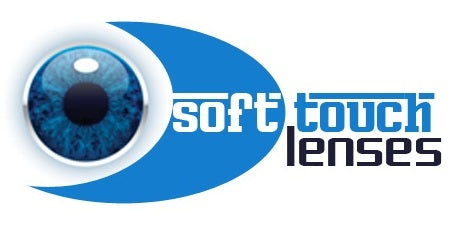Choosing the Right Eye Lenses
Choosing the right eye lenses is crucial for achieving clear and comfortable eyesight when it comes to vision correction. Whether you have myopia (nearsightedness), hyperopia (farsightedness), astigmatism, or age-related presbyopia, finding the perfect lenses can significantly enhance your visual experience. This comprehensive guide will walk you through the various types of eye lenses available, their benefits, and how to select the most suitable option for your needs.
Factors to Consider when Choosing Eye Lenses
Selecting the right eye lenses involves considering several important factors to ensure optimal vision correction and comfort. Here are some key factors to keep in mind:
Vision Prescription
Getting a comprehensive eye test from an optometrist or ophthalmologist is the first step in picking the best eyeglasses. This exam will identify your exact vision prescription, including any nearsightedness, farsightedness, or astigmatism you may have. Your prescription will be used to help you choose the right lenses.
Lifestyle and Activities
Take into account your way of life and your routine activities. Contact lenses, which offer improved peripheral vision and movement flexibility, can be a better option, for instance, if you lead an active lifestyle or engage in sports. On the other hand, special lenses made for digital device use may be recommended if you spend a lot of time in front of a computer.
Comfort and Convenience
Comfort is crucial when choosing eye lenses. Some people find contact lenses more comfortable to wear than spectacles, while others prefer the convenience and ease of use that spectacles provide. Consider your preferences and daily routine to determine which option best fits your comfort needs.
Eye Health Considerations
If you have specific eye health conditions, such as dry eyes or allergies, it's important to consider these when choosing lenses. Some contact lenses are designed to address these issues, offering improved comfort and breathability. Discuss any underlying eye health concerns with your eye care professional for appropriate recommendations.
Types of Contact Lenses
Contact lenses are available in various types to cater to visual needs and comfort preferences. Here are some commonly used contact lenses:
Soft Contact Lenses
Soft contact lenses are flexible, water-absorbing polymers that mold to the shape of the eye. They provide outstanding comfort and are appropriate for those with various vision adjustments, including astigmatism and presbyopia.
Multifocal Contact Lenses
Multifocal contact lenses are appropriate for people with presbyopia since they correct distance and near vision simultaneously. They have multiple zones inside the lens, allowing for seamless focus length changes.
Colored Contact Lenses
Colored contact lenses allow you to adjust or enhance the color of your eyes. You can experiment with various looks and completely change your appearance thanks to the prescription and non-prescription choices that are accessible.
Tips for Choosing the Right Eye Lenses
Here are some tips to help you make an informed decision when selecting eye lenses:
- Consult an Eye Care Professional: Seek advice from an optometrist or ophthalmologist who can assess your vision, lifestyle, and health to propose the best eye lenses.
- Think about lifestyle factors: Consider your regular activities, hobbies, and participation in sports. Choose lenses that provide the vision correction and comfort you require for your lifestyle.
- Measure Comfort and Convenience: Choose between the independence of eyewear convenience and contact lenses. Consider considerations such as simplicity of use, maintenance needs, and how they will fit into your regular schedule.
- Determine the Long-Term Cost: Consider the long-term costs of your preferred eye lenses. Consider costs such as lens replacement, cleaning solutions, and annual eye exams.
Conclusion
Choosing the right eye lenses is essential for optimal vision correction and overall visual comfort. You can make an informed decision by considering your vision prescription, lifestyle, comfort needs, and eye health. Whether you opt for spectacles, contact lenses, or intraocular lenses, consulting with an eye care professional will ensure you find the perfect solution for your unique visual requirements.
FAQs (Frequently Asked Questions)
How should I clean and maintain my contact lenses?
Maintaining the cleanliness and duration of your contact lenses requires proper cleaning and care. Use the cleaning solutions indicated by your eye care professional and follow the directions your eye care practitioner supplied. To clean your lenses, avoid using tap water or saliva.
Does wearing contact lenses have an age requirement?
Individuals of all ages, including young toddlers and senior citizens, can wear contact lenses. However, younger people may require more direction and monitoring to ensure proper usage and hygiene.
Can someone with a vision prescription wear colored contact lenses?
Yes, prescription colored contact lenses are available. You can improve or modify the color of your eyes while also correcting your vision. To decide which is best, speak with an eye care specialist.
